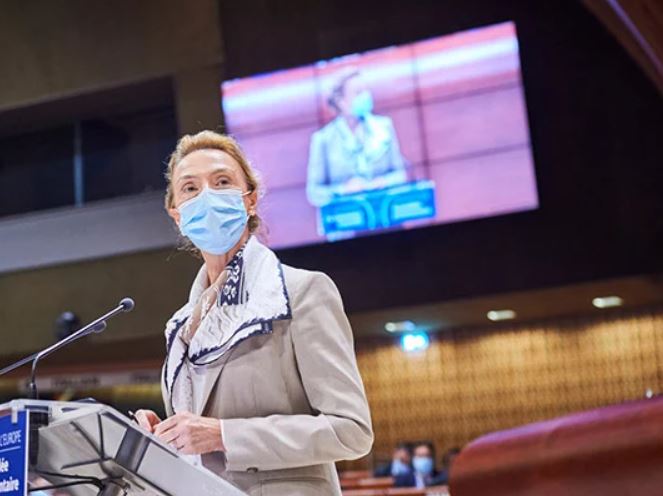“My main diagnosis is that democracy in Europe is declining,” said Marija Pejčinović Burić, Secretary General of the Council of Europe, during a question-and-answer session with delegates during the autumn session of the Parliamentary Assembly of the Council of Europe (PACE). She called the annual report “Europe’s democratic renewal.”
According to the Secretary General of the Council of Europe, of course, the report is a difficult document, but it gives the answers to all the questions on how to overcome problems. The main tool is the implementation of all the principles of the Council of Europe. The Ukrainian delegate Lesia Vasylenko stated that Russia had occupied Crimea and asked the Secretary General of the Council of Europe what they could do to make the dialogue not merely formal, but to oblige the countries to fulfill their commitments and not deviate from the democratic path. She suggested that special mechanisms be introduced for that and a special group be created.
On this occasion, Marija Pejčinović Burić said, “The Council of Europe is dealing with so-called democratic security. These are 223 different conventions that are binding on all member states. This is a way for the Council of Europe to address the temporarily occupied territories or post-conflict areas. But we are not a security organization. This is the field of activity for other organizations. As for the zones of unresolved conflicts, they have always been and still remain on the agenda of the Council of Europe at a high level. Everyone in the territory of the Council of Europe must be protected by the provisions of the European Convention on Human Rights. That is why the Council of Europe always asks for the unimpeded access of our other observer bodies in those areas. We all know that this is not always possible, but as Secretary-General, I would always ask for that access, because only by accessing those problem areas can we be sure that the assessment of our oversight bodies will be appropriate. But it is possible that the country or countries are involved in this process.
For example, we have recently begun negotiations with Armenia and Azerbaijan to introduce trust-building mechanisms between the two countries. Only in one case will we continue to do so- if both countries agree. The word trust-building mechanisms suggests that it is a tool that allows for dialogue between countries that do not have the opportunity to communicate or negotiate with each other.”
Read also
Tatev Harutyunyan




















































